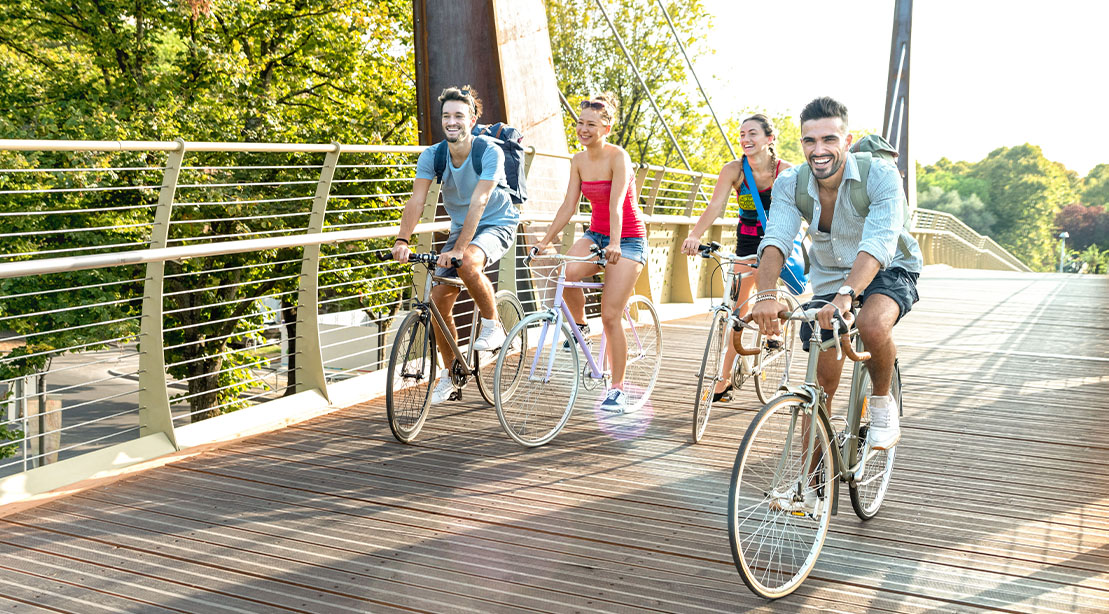Cycling has long been thought of as a great way to keep your joints moving in a low impact way, and a recent study has now bolstered this theory, showing that cycling reduces knee pain and the development. of arthritis.
How was the cycling study carried out?
The report, published in Medicine & Science in Sports & Exercise, looked at the data from more than 2,600 people during four periods of their lifetime (12-18, 19-34, 35-49, and over 50) and collected a combination of self-administered questionnaires and retrospective info from the Osteoarthritis Initiative, to track levels of knee pain and the most common form of arthritis, and how cycling during the participants lifetime may or may not intervene.
What were the results?
According to the study, those who had cycled for a period of their life were a whopping 17% less likely to suffer from knee pain and 21% less likely to develop osteoarthritis in the knee, when compared to those who had never cycled. “People who participated in bicycling had a lower prevalence of frequent knee pain, ROA (radiographic osteoarthritis), and SOA (symptomatic radiographic osteoarthritis),” concluded the report. “The benefit appeared cumulative. This study indicates that bicycling may be favorable to knee health and should be encouraged.”
The “cumulative” effect appeared to show that the more cycling an individual had carried out in their life, the less likely they were to go on to develop knee pain or arthritis. Talking to NBC news, the studies lead author, Dr Grace Lo said: “The more periods of time in life a person spent bicycling, the less likely she or he had knee pain and signs of osteoarthritis.”
Why is cycling good for knee health?
While the study itself did not confirm the reason for these biking benefits, Lo told NBC News that the low impact nature of cycling may be one of it’s advantages. “We do know that activities that are non-weight bearing are less likely to cause pain,” he explained. “That’s probably a reason why people have less pain when bicycling as compared to other activities.”
